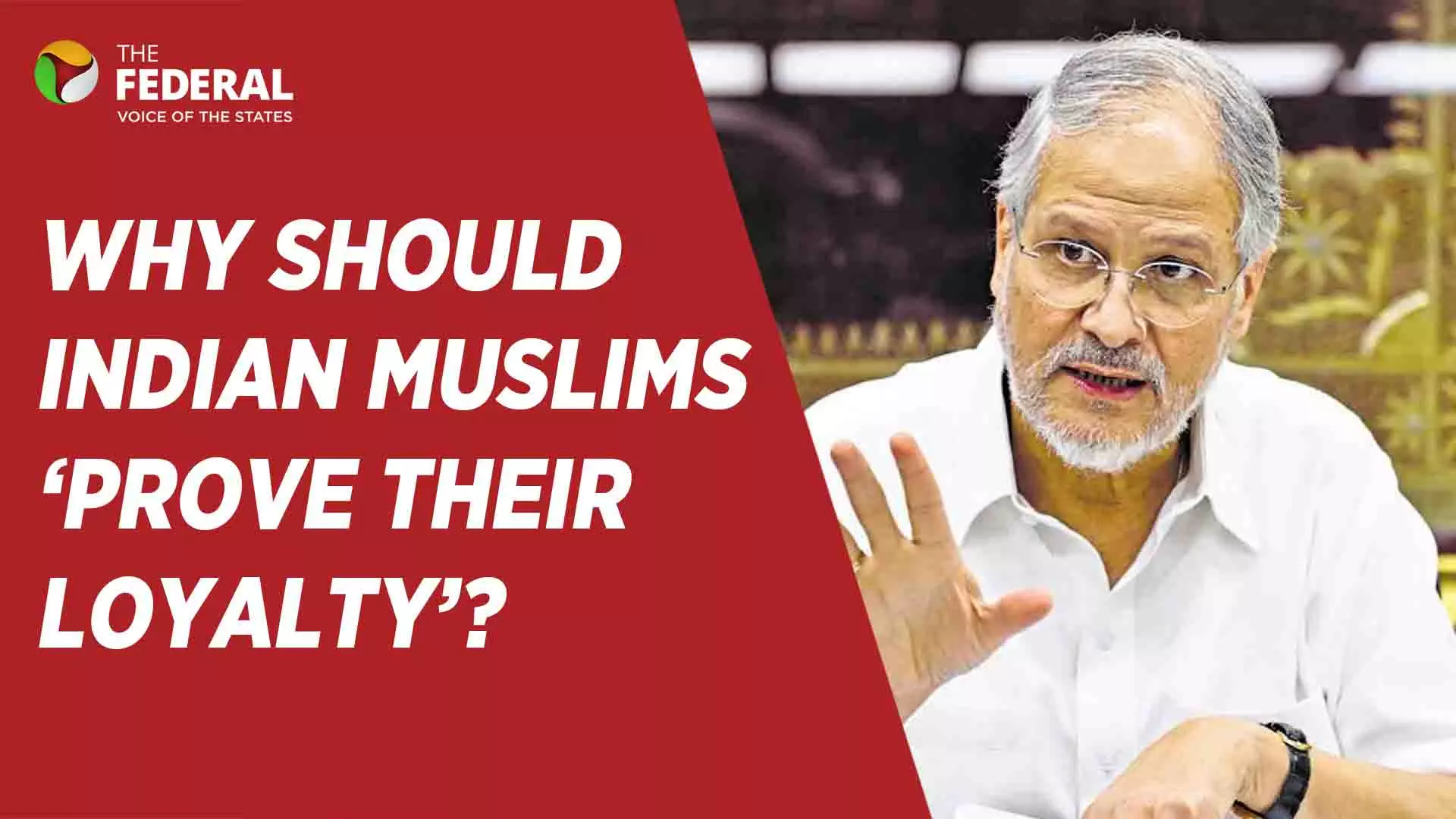
Najeeb Jung exclusive: Why is Indian Muslims’ patriotism being tested post-Pahalgam?
Najeeb Jung questions the recurring demand for Indian Muslims to prove their patriotism after every terror incident

The April 22 terror attack in Pahalgam, Kashmir, which claimed 26 lives, has not only intensified India-Pakistan tensions but also sparked a troubling wave of Islamophobic sentiment within India.
In an interview with Sanket Upadhyay, former Delhi Lieutenant Governor and academic Najeeb Jung discusses the societal repercussions of the attack, the unjust scrutiny faced by Indian Muslims, and the broader implications for national unity.
Sanket Upadhyay: Mr Jung, in the wake of the April 22 Pahalgam attack, we've seen a disturbing trend where Indian Muslims, particularly Kashmiris, are being targeted. Your thoughts?
Najeeb Jung: First and foremost, my deepest condolences to the victims and their families. The pain they're enduring is unimaginable.
What's profoundly troubling is the backlash against Muslims across India. This isn't just a Muslim concern; many of my secular Hindu, Christian, and Sikh friends share this dismay. Kashmiri students, including young women, are facing harassment in hostels and residences. It's heart-breaking to see these students, who left their homes for education, now feeling unsafe and unwelcome.
Also read: Muslim residents pay the price as Gujarat hunts for Bangladeshi illegals
The expectation for Muslims to constantly prove their patriotism is deeply unsettling. I've served this nation for 45 years, sworn an oath to the Indian Constitution—not to any religion. I shouldn't have to wear my patriotism on my sleeve to validate my loyalty.
Sanket Upadhyay: You mentioned that such divisions play into the hands of adversaries like Pakistan. Could you elaborate?
Najeeb Jung: Absolutely. Dividing India along religious lines is a strategic victory for our enemies. General Asim Munir's statements weren't offhand; they reflect an understanding of the internal discord being sown within India. If 20 per cent of our population feels marginalized or fearful, it weakens the very fabric of our nation.
Sanket Upadhyay: There's been a noticeable surge in coordinated hate messages on platforms like WhatsApp after the attack. What's your take on this?
Najeeb Jung: This isn't spontaneous; it's orchestrated. There's a "deep state" within right-wing groups that can mobilize vast networks overnight to spread hate. Disturbingly, this narrative has infiltrated institutions like the civil services, foreign services, and even the armed forces. It's imperative for secular voices across professions to rise against this tide of hatred.
Also read: Pahalgam: BJP’s war narrative risks democracy, warns veteran journalist Ashutosh
Sanket Upadhyay: Why do you think the government remains silent on this issue?
Najeeb Jung: It's a political strategy. Polarization has been used as a tool to consolidate votes. It's paradoxical that in a nation where the majority feels threatened by minorities, the narrative of fear is perpetuated for political gains.
Sanket Upadhyay: Some argue that Muslims expressing their patriotism openly can counteract the negative narratives. Do you agree?
Najeeb Jung: While expressions of patriotism are commendable, the compulsion to do so stems from fear, not genuine sentiment. It's disheartening that Muslims feel the need to publicly assert their loyalty, a pressure not equally applied to other communities.
Also read: Pahalgam attack: Meet the Kashmiri guide who risked his life to save 11 tourists
Sanket Upadhyay: What steps can be taken to address this growing divide?
Najeeb Jung: Civil society must take the lead. The silence of secular voices is deafening. We need a resurgence of the socialist movement, reminiscent of leaders like Lohia, Dr Faridi, and George Fernandes. The Opposition, especially the Congress, must vocally and actively counteract this narrative.
(The content above has been generated using a fine-tuned AI model. To ensure accuracy, quality, and editorial integrity, we employ a Human-In-The-Loop (HITL) process. While AI assists in creating the initial draft, our experienced editorial team carefully reviews, edits, and refines the content before publication. At The Federal, we combine the efficiency of AI with the expertise of human editors to deliver reliable and insightful journalism.)

